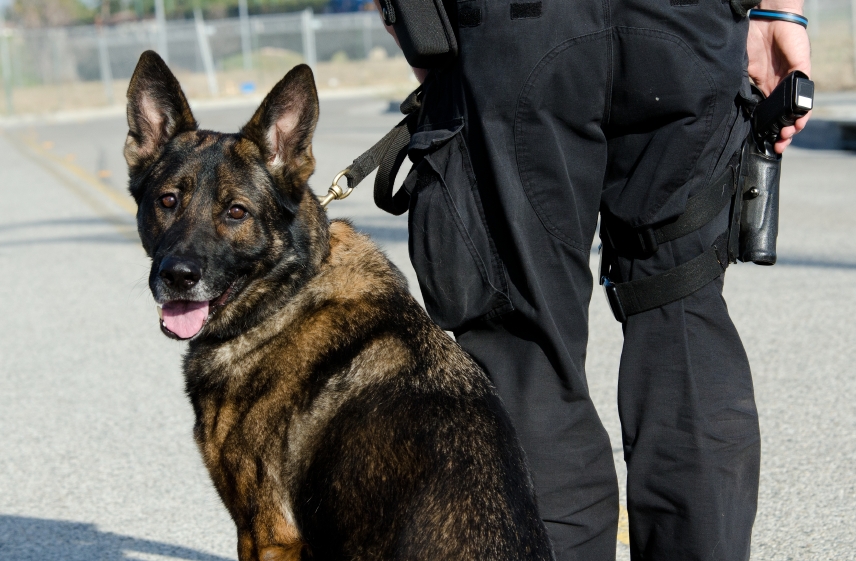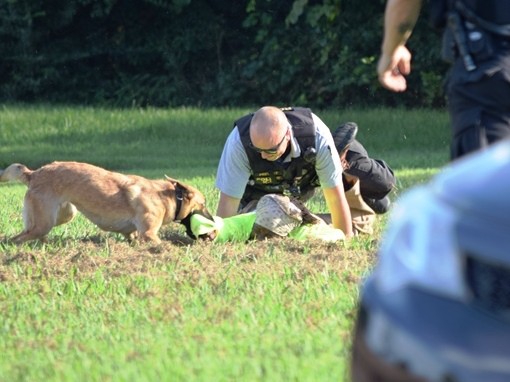Important Pet Dog Training Strategies for a Lifetime of Good Habits
Reliable dog training is foundational to cultivating a well-behaved buddy that enriches our lives. Important techniques, such as favorable support and constant command training, not only boost obedience however likewise strengthen the bond in between owner and pet. Recognizing canine habits and employing socializing techniques can protect against prospective concerns before they emerge. Nevertheless, the trip doesn't finish with basic commands; resolving behavioral obstacles needs a nuanced strategy that numerous forget. What are the essential aspects that can change your training experience and guarantee long lasting outcomes?
Comprehending Dog Actions

Furthermore, recognizing the innate reactions and drives of a canine-- such as target drive, social interactions, and territorial actions-- allows trainers to expect and take care of certain actions. For instance, a pet with a strong target drive may need various techniques than one that is extra socially inclined.
Additionally, very early socializing and exposure to different settings considerably influence a pet's behavior and character. Favorable experiences throughout crucial developmental durations can bring about well-adjusted adult canines, whereas adverse experiences might cause anxiety or hostility.
Favorable Support Approaches
Amongst the various canine training methods, favorable support techniques stick out for their effectiveness and capability to enhance the bond in between pet and instructor (Ohana K9 Academy). This approach emphasizes gratifying preferred habits as opposed to punishing unwanted ones, fostering a more cooperative and trusting connection
Positive support can take numerous forms, consisting of treats, appreciation, toys, or play. The secret is to offer prompt benefits when the pet displays the desired habits, permitting them to make the link in between the activity and the favorable end result. For instance, if a canine rests on command, offering a treat immediately enhances that habits, making it more probable to be duplicated.
Uniformity is critical in positive reinforcement training. Instructors ought to utilize the very same cues and benefits to stay clear of confusing the canine. In addition, differing the rewards can preserve the pet dog's passion and motivation, transitioning from frequent treats to periodic appreciation or browse around this web-site play as the pet masters the behavior.

Fundamental Command Training
Building on the foundation developed via positive reinforcement methods, standard command training offers as an important step in developing a well-mannered pet. This training commonly includes vital commands such as "sit," "remain," "come," and "down - Ohana K9 Academy." Each command plays a crucial role in cultivating reliable communication in between the dog and its proprietor, enhancing the total bond
Begin with brief, focused sessions lasting no more than 5 to 10 mins to preserve your dog's interest. Make use of high-value treats as benefits, making certain the dog connects proper behavior with positive results.
Patience is essential; canines may require numerous reps to realize commands totally. Normal method strengthens discovered commands, solidifying them in your dog's actions arsenal.
Socializing Techniques
In the realm of pet training, socializing methods are vital for cultivating a well-adjusted and confident canine friend. Efficient socialization entails revealing your pet dog to a variety of atmospheres, people, and various other animals in a controlled and favorable way. The primary purpose is to assist your dog create a comfort degree with diverse experiences, which can considerably reduce anxiety and stress and anxiety in unfamiliar scenarios.
Begin socialization throughout the vital developmental window of 3 to 14 weeks, when puppies are most responsive to brand-new experiences. Introduce your dog to different setups, such as parks, metropolitan locations, and homes with other pet dogs. Guarantee these experiences are positive by utilizing treats and praise to enhance etiquette.
Group training classes are an outstanding way to expose your canine to other canines and individuals in a structured atmosphere. This permits supervised communications, helping your dog find out ideal social cues. Routine getaways and playdates with genteel canines can further boost social skills.
Resolving Behavioral Problems
Resolving behavioral problems in pet dogs is an essential element of training that needs an organized strategy and understanding of canine habits. Usual concerns such as barking, chewing, aggression, and anxiety can come from different elements, including lack of socializing, insufficient exercise, or perhaps clinical worries.

In addition, establishing an organized routine that includes regular workout and psychological stimulation can considerably reduce behavior concerns. Interactive toys can maintain a pet dog engaged and minimize devastating tendencies. In instances of severe aggression or stress and anxiety, speaking with a specialist canine instructor or a vet behaviorist may be necessary.
Verdict
In verdict, efficient pet training techniques, including favorable reinforcement, basic command training, and socializing, are essential for fostering good actions throughout a more helpful hints dog's life. Addressing behavior issues with a methodical technique not only boosts obedience yet likewise strengthens the bond in between canines and their owners.